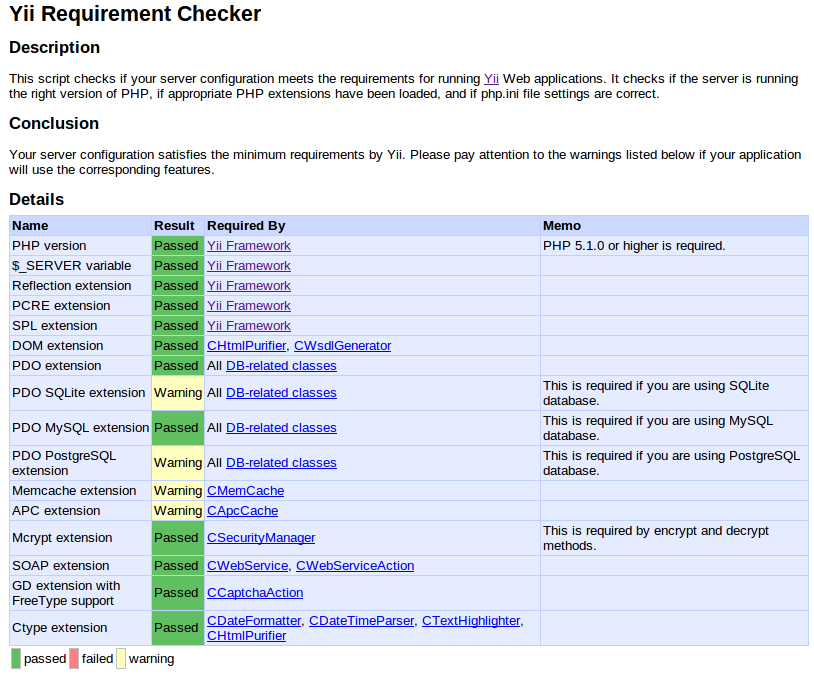© 2015 X2Engine Inc.
Installation
Contents
Prerequisites
Before installing X2EngineCRM, you should first ascertain whether your hosting environment is properly configured. The following features are required for X2EngineCRM to function properly:
- PHP version 5.3 or later
- PHP's cURL library
- A password-protected MySQL database server connection, and a database on which the user of the connection has all rights (i.e. select, drop, create and update).
- The Apache 2 web server, with mod_rewrite enabled.
Next, ensure that the requirements of Yii Framework, the application building framework on which X2Engine is designed, are met. To do this:
- Download Yii Framework and upload the "requirements" folder to your web server.
- Navigate to the requirements folder on your server using a web browser. You should see a page that looks similar to this:
Note that the following requirements are not necessary:
- The SQLite and PostgreSQL extensions; X2Engine depends on MySQL, so these other extensions will not be used.
- The DOM extension; it is not required.
- The caching extensions (Memcache, APC cache); caching is not currently required, although APC can increase performance
- The SOAP extension; the classes that depend on it are not used
Enabling PHP extensions
If your server does not meet the minimum system requirements for running X2Engine, and you are a system administrator of your server, you will be able to install the necessary modules. Note, however, that as of the most recent version, the MySQL PDO extension is the only extension used by X2Engine that isn't included by default and always enabled in PHP 5.3; the reflection class and extensions SPL, PCRE and Ctype should all be available if PHP is at version 5.3 or later.
In most distributions of Linux, PHP extensions can be easily installed by the distribution's default Package management system. That is the recommended method of installing them; typically, the package manager will automatically configure and reload the HTTP server to enable them.
Ubuntu & Debian
sudo apt-get install php5-mysql
The extension mbstring will typically be included in the Apache module package.
CentOS, RHEL & Oracle Linux
sudo yum install php-pdo php-mbstring
Recommended Extension: mcrypt
The mcrypt module is not required but is recommended. To install in Debian, Ubuntu and other Debian-based distributions:
sudo apt-get install php5-mcryptTo install in RedHat-based distributions of Linux, the recommended method is to first add the EPEL repository (mcrypt is unavailable in the default repositories). Then, it can be installed via running:
sudo yum install php-mcrypt
